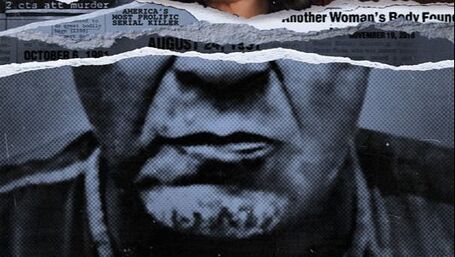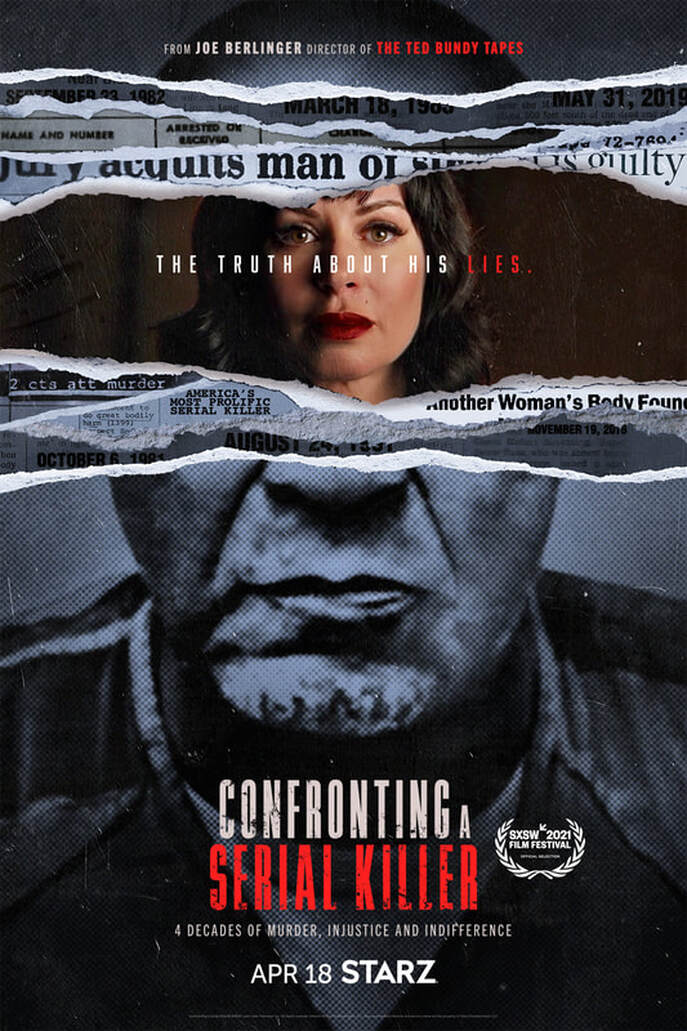
True crime is a delicate minefield to navigate...
...One wrong move, one step too far into certain territory, and soon you’re in something that feels more like exploitation or victim blaming than a condemnation and analysis of a killer. This risk is present in every new documentary and creating an effective one that maintains the right kind of focus is a monumental challenge. There are sensitivities to be more aware of that don’t necessarily factor into works of fiction, but like fiction, the way you tell the story depends on the kind of story you want to tell.
Director Joe Berlinger is back in the world of true crime with Confronting A Serial Killer, a STARZ documentary series whose first two episodes premiered this week at SXSW Film Festival. The series finds true crime journalist Jillian Lauren in conversation with Sam Little, a serial killer believed to have killed at least 93 people across the United States. The aim of the show purports to be exploring “the unprecedented relationship between Little and Lauren while investigating the devastating impact of bias against marginalized women in the criminal justice system.” A worthy and somewhat unique approach, to be sure, but the execution feels like it goes directly against the grain of its goal. Berlinger is no stranger to the true crime genre, and in fact caught a little heat in 2019 for his 1-2 punch release of The Ted Bundy Tapes and Extremely Wicked, Shockingly Evil, and Vile, both of which center Ted Bundy and the way his existence as a well-enough-to-do white man allowed him to manipulate the system. With Confronting A Serial Killer, he takes a somewhat similar approach in that the killer himself is given the space to confess to his crimes. Interestingly, though uncomfortable, Little is only comfortable confessing to Lauren, a woman who, after a tumultuous past, is determined to explore why domestic abusers and serial killers enact such casual brutality against women. Lauren uses Little’s own tactics against him, listening closely to what he says and becoming the thing he will best respond to: “a mother, a daughter, his ultimate victim”.
Samuel Little, confirmed to be involved in more cases than any other killer in United States history, operated from 1970 into possibly as late as his conviction in 2012. Part of what allowed him to be so prolific and to escape conviction for so long is that he knew the kind of victim pool authorities would ignore, or that would be hard to track and prove. Namely, disenfranchised minorities and sex workers across the United States who may or may not have had rap sheets of their own. To its credit, the show allows the surviving victims a voice and a space to be angry at their own dismissal. No one seems to have put enough value on the words and accusations of Black sex workers from Mississippi simply because they were Black sex workers from Mississippi. Some accusations were not even considered until the disappearance of a young white woman two years later.
For a show that claims to aim to investigate the bias within the criminal justice system, the first two episodes of Confronting really seem to let it run rampant. Every investigator or prosecutor interviewed makes a point to mention how each victim was a sex worker who may or may not have been an alcoholic and/or drug addict. At one point, a prosecutor even explains his heartbreak at failing to keep Little in prison thanks to a witness disappearing because he felt as though he had “failed a child”. The “child” in question? 26-year-old Patricia Ann Mount, who prosecutors mention had an IQ of 40 and thus, so they say, was developmentally little more than a child. But also, an alcoholic who went home with men often. I can only hope the show will move past showcasing the scenario we already know so well—the lives of sex workers and disenfranchised women are valued less in the criminal justice system—and do more to interrogate why that belief holds such powerful sway even to society at large. The bias pervades every moment of these interviews, perhaps most egregiously in the last 15 or 20 minutes of the second episode, where Gary Rempel, DA of San Diego County, labels Tonya Jackson, a Black sex worker Little was caught strangling, as “poorly educated, not a strong speaker” and someone who “wouldn’t have made a very good witness on the stand” if her attack had not been interrupted by the cops. Even Laurie Barros, a white sex worker who survived an attack, was not considered a credible witness—or indeed much of a witness at all, it seems—despite having evidence and sketches to support her story just for being a sex worker. In perhaps the most discouraging six minutes of the entire show so far, Rempel and Barros meet, and she confronts him about the miscarriage of justice that resulted from the way the trial she testified in was handled. His response? Laying the blame on her for not reaching out when no one from the trial contacted her after her testimony. It is worth noting that the biases within the justice system are instrumental to how many murders Little was able to commit. Had they at any point considered the stories of the victims who survived and came forward worth fighting for, he may have been put away long before he ever reached 93 victims. An integral part of Confronting seems to be the confessions themselves, and there is no denying their importance. That’s 93 families who now know the answer to the worst mystery of their lives. But it is also important not to lose sight of what the main focus of any balanced true crime consideration should be: the value of the lives of the victims themselves. We know he is a monster for the things he did and the dismissive way he explains them. What matters is remembering the humanity of the people lost at his hand, not because they were sex workers, or alcoholics, or addicts, or society’s otherwise discarded, but because they were people with lives and families that care about them. Their occupations and mistakes or choices do not make their lives or status as victims any less valuable than anyone else’s. Confronting a Serial Killer premieres on STARZ on April 18th.
By Katelyn Nelson
Celebrate Women in Horror Month with us by donating to Cinefemme at: Donate (cinefemme.net)
0 Comments
Leave a Reply. |
Archives
March 2023
|


 RSS Feed
RSS Feed